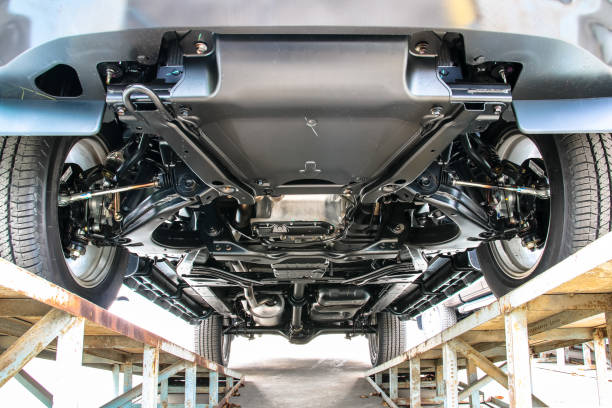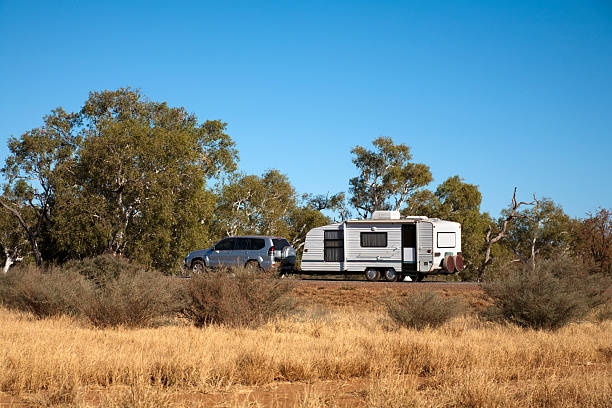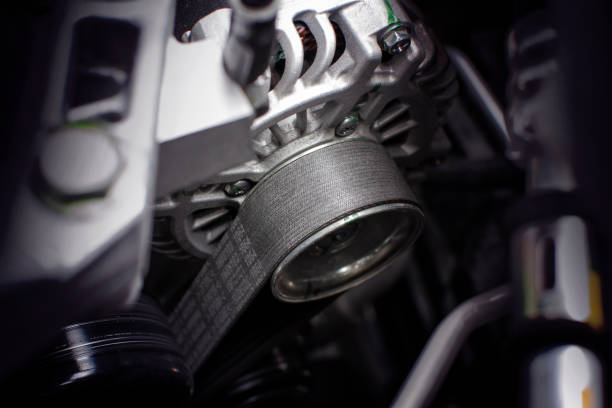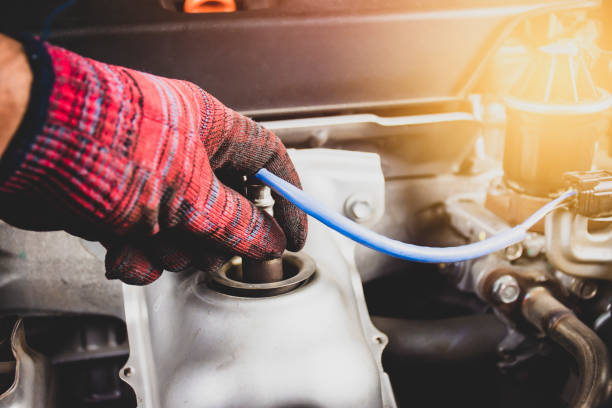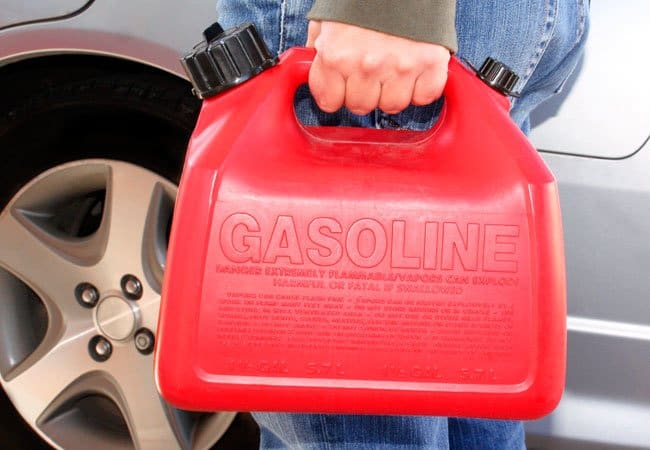
A lot of people have no idea what to do with old gasoline. Maybe you had an old car that you had to junk. Or, you may have containers of gasoline that you kept around to use in the lawnmower or snowblower. Regardless of why you have it, it’s important that you know how to safely – and legally – dispose of it.
Depending on where you live, there may be different laws when it comes to disposing of gas and other hazardous chemicals. Every town is different. One thing is for sure. If you’re caught illegally dumping gasoline, you will be facing some pretty hefty fines. In some cities and counties, it can even be considered a crime to do this. So, on top of heavy fines, you might also be facing some jail time or probation. The best way to avoid this is to do your homework before disposing of any sort of hazardous chemical.
Here, we’ll talk about what to do before you decide whether to repurpose or dispose of your gasoline. We’ll also discuss what the laws say about disposing of hazardous chemicals and what dangers gasoline poses to humans and animals. Finally, we’ll let you know what places you can use to dispose of your old gas.
if you are wondering how long the gasoline last, check out this article -> How long does gasoline last
Why Can’t You Just Dump Your Old Gas?
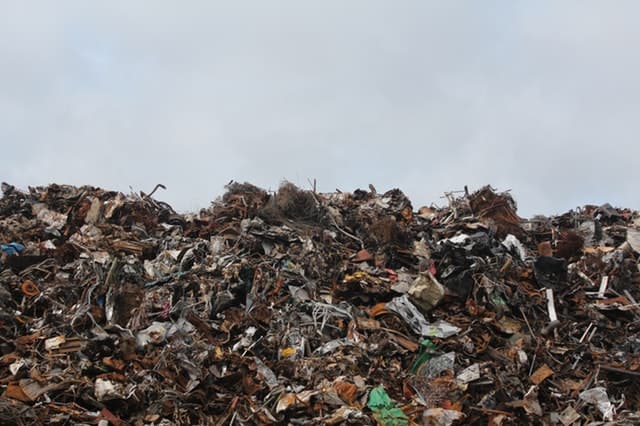
Dumping gasoline is not only illegal, but it can also be very dangerous. Some people think they can just dump their old gas down the drain. If you do this, there’s a very good chance that gasoline will damage your pipes. There’s also the chance that it’ll contaminate the drinking water for you and the other people who live near you. This extends to both humans and animals.
The same is true if you dump your gas into the grass or soil. That gasoline will seep into the ground and find its way into the soil and drinking water. This can hurt people, animals, and vegetation. It’s just too risky to do. And, if you’re caught, you will be fined.
If you need to get rid of old gas, you’re better off doing it safely and legally. There are ways to do this. Yes, it may be inconvenient. And, yes, you may have to pay a fee to do this. But it’s going to be safer and cheaper to do it this way than to dump it illegally. If you’ve never had to dispose of old gas before, read on. We’ll talk about the different ways you can do this, no matter where you live.
Always Call Ahead – No Matter Where You Intend to Take Your Old Gasoline

No matter where you plan on taking your old gas, make sure you call ahead. Every recycling center and hazardous waste disposal site has its own rules. They also have their own hours. For all you know, they may not be open to the public. Or, they might only be open a couple of days a week. The last thing you want to do is put containers of old gas in your car and have to drive around with it for days or weeks on end.
Some centers also don’t accept all types of hazardous chemicals. Some centers take paint but not gas. You want to make sure they’ll be able to accept your containers of gas before you take the trouble to drive out there. You also want to check and see how much it’ll cost. If you get there and don’t have cash, it could be a problem. And check to see if they accept cash or if you can use your card there. You don’t want to get all the way there and find out they only take cash. Especially since a lot of people don’t carry cash on them these days.
Where Can You Take Your Old Gas?

If you’re not sure where to take your old gasoline, you’re not alone. A lot of people wouldn’t have the first clue as to what to do with their old gasoline. There are a few options. First, you can take it to the recycling center. Some of these places accept gasoline (in a container) and they’ll recycle it for you. There is usually a fee for this.
Other towns have fire departments that are willing to take the gas off your hands. They’ll either dispose of it for you or repurpose it. It will depend on what condition the gas is in when they get it. Finally, there are also waste disposal sites you can take it to. Not all towns have these so you may have to drive a bit. Go online and look for one near your town. Then call ahead, make sure they’ll take your gas and find out the details.
How Does a Waste Disposal Site Work?
If you decide to take your gas to a waste disposal site, call ahead. You want to make sure they’re open to the public. You also need to make sure they’re willing to take your gasoline. When you call, ask a few questions, such as:
- Do they charge a fee? If so, what is the fee and do they only accept cash?
- Are they open to the public?
- What are their hours of operation?
- What kinds of containers do they accept?
- What is the largest container they’ll take?
Once you have the answers to these questions, you’re ready to take your old gas to the waste disposal center. When it comes to recycling centers, you’ll want to ask the same questions. This way, you have all the information you need ahead of time.
Local Auto Repair Shops May Be Willing to Take it Off Your Hands
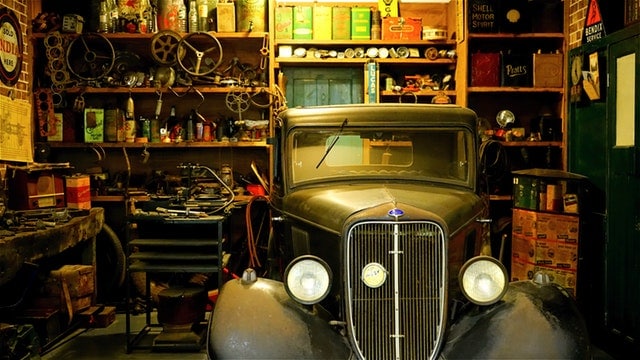
Believe it or not, some auto repair shops accept old gasoline. They can either dispose of it for you or repurpose it. Repurposing gas just means the use it in other machines. For example, they may use it for their lawnmower or snowblower. Or, they’ll dispose of the gas and use the container for future use. Don’t expect to get your container back. Even if they charge a fee to take the gas off your hands, it’s still cheaper than facing a fine issued for illegal dumping.
You may ask why you can’t just repurpose the gas on your own. The answer is, you can. There’s no reason why you can’t use the old gas in your lawn gear or a snowblower. Just don’t try to use it in another vehicle. There’s too great a risk that the gas is dirty. It’s also not smart to put dirty gasoline in a vehicle. It’s one thing to push a lawnmower full of used gas – it’s quite another to strap your children into a vehicle with potentially dirty gas in the tank.
How Do You Repurpose Old Gas?
If you want to try to repurpose your old gas, you need to be careful. Gasoline is a hazardous and highly flammable liquid. The last thing you want to do is mishandle it. You could start a fire or contaminate your home. So you want to follow these steps when attempting to repurpose your old gas:
- Pour a sample of the gas into a clean, clear mason jar
- Check for sediment at the bottom of the jar
- Look to make sure the gas isn’t a dark color
- Smell the gas – if there is a strong odor, it’s not suitable for repurposing
- Once you’ve determined the gas is clean, throw out the mason jar
- Pour the gas into a safe container – the standard red gas bottle is ideal
- Use the gas in your lawnmower, etc. Do not use it in another vehicle
It’s important to weigh the benefits of repurposing old gas. Even though gas is quite expensive these days, it’s not that much. If you aren’t absolutely sure you need to repurpose your old gas, don’t do it. It is sometimes easier, safer and cheaper to just take your old gas to a recycling center or waste disposal site.
Final Tips
If you need to dispose of some old gasoline, here are a few tips to keep in mind. Remember – safety is first. No matter what you do, that has to be your first priority.
- If you aren’t sure, ask! Call your local government and ask for help. They’ll be more than willing to provide the answers to your questions.
- Your local fire department can always help. Either they’ll dispose of the gas for you or send you to someone who can
- Never use old gas in your car. Even if you repurpose it, only use it in things like a lawnmower or snowblower.
- Call ahead – regardless of where you plan to take your old gas, call first. You want to get your ducks in a row. This way, you avoid wasting time and money.
- The last thing you want to do is get a fine. Do not illegally dispose of any hazardous chemical, including an old gas





